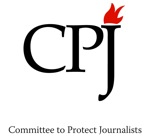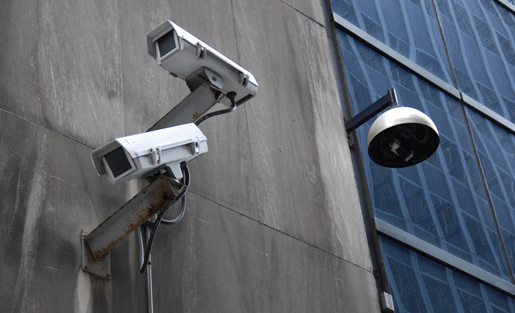It all went very fast. On August 4, Germany’s chief federal prosecutor, Harald Range, was ordered by Justice Minister Heiko Maas to withdraw an independent expert from the investigation of two journalists from Netzpolitik. The investigator had concluded that leaked documents quoted by the news website amounted to a disclosure of a state secret, one of the required criteria to pursue a treason case. The prosecutor protested: “To meddle with an internal review on the basis that the results might be inopportune is an intolerable interference with the independence of the judiciary.” A few hours later, on that Tuesday evening, Maas asked for the prosecutor to be granted early retirement. In plain words, Harald Range was sacked.
This dramatic epilogue of a story that gripped Germany and mobilized the public is a major victory for press freedom, investigative journalism and privacy rights. It stands in stark contrast to developments in other European countries, particularly France and the U.K., where increased surveillance powers have not been met with similar resistance.

Image by Brian Turner and used here with Creative Commons license/
A case of treason, ‘the first such probe in half a century’
On July 30, Netzpolitik, an award-winning publication specializing in digital rights issues, announced that — following a complaint by Hans-Georg Maassen, the director of the Office for the Defense of the Constitution (BfV), Germany’s domestic intelligence agency — Range had started a preliminary investigation against Markus Beckedahl and André Meister, the co-founders of the website. They were suspected of high treason, the first such probe in half a century. Their crime? Quoting from classified intelligence reports in articles posted on February 25 and April 15, detailing the secret services’ proposals to expand surveillance, particularly of social media users.
The reaction against the federal prosecutor’s decision to investigate was swift and massive. Opposition politicians and even members of the Social Democratic Party (SDP), the junior partner in the governing coalition, expressed their indignation. Journalists’ organizations jumped to the defense of their colleagues: “It is an unacceptable attempt to muzzle two critical journalists,” said Michael Konken, chair of the German Journalists Association known as DJV (Deutscher Journalisten-Verband). People even took to the streets and sent money to Netzpolitik. And on July 31, the federal prosecutor suspended the treason inquiry, pending an internal assessment on how to proceed.
The government, an uneasy coalition between Angela Merkel’s Christian Democratic Party (CDU) and the center-left SPD, was left in no doubt that is was in trouble. The case came on the heels of revelations in May that the German foreign intelligence service, Bundesnachrichtendienst (BND), had cooperated extensively with the U.S. National Security Agency (NSA). “The targets reportedly included European companies, institutions and individuals, violating German policy and possibly breaking the law,” wrote Joanna Slater in the Globe and Mail on May 7.
These revelations had stunned German public opinion; citizens had been led to believe, after Merkel 2013’s well-publicized outrage at being spied upon by the NSA, that their country was not part of these games. Surveillance is anathema to most Germans due to their history of Nazi and STASI — the former secret police of communist East Germany — totalitarianism, under which citizens were ruthlessly spied upon by the state and its snitches.
A question of surveillance versus civil liberties?
For Netzpolitik’s founder, Markus Beckedahl, the aim of the prosecutor was clearly to intimidate the press. “There is no doubt that this complaint targeted those who were searching for the truth,” he said, as reported in Brussels daily Le Soir. “It is strange to see a State investigate people who fight for citizens’ rights.” Others also interpreted the investigation as the will of intelligence services to shift in their favor the balance between surveillance and civil liberties. “The freedom of the press and of expression is a valuable asset,” the federal prosecutor said, according to reports. “But this freedom, including on the Internet, is not limitless. It does not absolve journalists of the duty to comply with the law.” Moreover, according to reports, the author of the complaint, Hans-Georg Maassen, had not hidden his conviction that the right of information has limits in the context of the fight against terrorism and extremism.
Critics also pointed out the double standards of the judiciary. The prosecutor was accused of misplaced priorities, “having failed to investigate with any conviction the NSA spying scandal revealed by whistleblower Edward Snowden, and targeting instead the two investigative journalists,” Kate Connolly wrote in the Guardian.
Merkel, who was disturbed from her holiday in the Italian Alps, reacted quickly to the mounting scandal and endorsed her justice minister’s decisions. She had no choice. Her reputation has sagged since the May espionage revelations, as the public wondered how much she knew and when she knew it. According to reports, 62 percent of Germans said that the affair had put her trustworthiness at risk.
In Germany, accusations of treason against the press can have disastrous consequences for the government. The arrest and detention in 1962 of Rudolf Augstein, the editor-in-chief of the weekly Der Spiegel, after he was accused of revealing state secrets, led to the forced resignation of Defense Minister Franz-Josef Strauss and ruined his ambition to be federal chancellor. It also established the independent magazine as one of the most influential German media outlets, and led to a reinforcement of constitutional guarantees for press freedom and freedom of expression. The Netzpolitik case might have a similar impact and put a brake on the ambitions of Germany’s spooks. And why not — it could reverberate through the rest of the European Union, where acceptance of surveillance has been boosted by recent terrorist attacks in Brussels, Paris and Copenhagen.
“The threat of being charged with treason has a clear general chilling effect on journalists engaged in investigative reporting,” the OSCE Representative for Media Freedom, Dunja Mijatovic, said in a letter to Germany’s foreign minister. “In cases of possible violations of confidentiality or state secrets regulations, authorities should refrain from trailing the media, whose job it is to investigate and report about issues of public importance,” she wrote. It is a reminder of principles and values that other EU leaders would be well-advised to ponder.
Europe Representative Marthoz is a Belgian journalist and longtime press freedom and human rights activist. He teaches international journalism at the Université catholique de Louvain and is a columnist for the Belgian daily Le Soir.
 A version of this post originally appeared on CPJ’s website. The Committee to Protect Journalists is a New York-based, independent, non-profit organization that works to safeguard press freedom worldwide. You can learn more at CPJ.org or follow the CPJ on Twitter@pressfreedom or on Facebook here.
A version of this post originally appeared on CPJ’s website. The Committee to Protect Journalists is a New York-based, independent, non-profit organization that works to safeguard press freedom worldwide. You can learn more at CPJ.org or follow the CPJ on Twitter@pressfreedom or on Facebook here.

